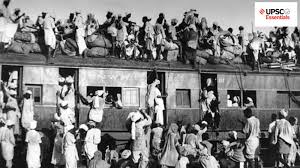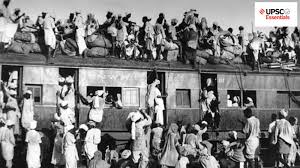
This weekly quiz focuses on important topics related to Indian History, Culture, and Social Issues, with specific emphasis on the Ain-i Akbari, Alvars, Nayanars, UPSC Essentials and other significant historical and cultural aspects. Designed to aid UPSC aspirants in their preparation, these multiple-choice questions (MCQs) cover a range of topics that are crucial for understanding the socio-cultural and historical fabric of India.
Table of Contents
1. Ain-i Akbari UPSC Essentials
- Who was the author of the Ain-i Akbari?
- A) Abu’l-Fazl ibn Mubarak
- B) Mirza Ghalib
- C) Babur
- D) Humayun Answer: A) Abu’l-Fazl ibn Mubarak Explanation: The Ain-i Akbari is a detailed document about the administration, culture, UPSC Essentials and society during the reign of Emperor Akbar. It was written by Abu’l-Fazl ibn Mubarak, one of Akbar’s courtiers and a prominent historian.
- Which of the following aspects is NOT covered in the Ain-i Akbari?
- A) Revenue system
- B) Social classes
- C) Military organization
- D) Theological disputes Answer: D) Theological disputes Explanation: The Ain-i Akbari covers aspects like the revenue system, social classes,UPSC Essentials and military organization of the Mughal Empire. It does not focus on theological disputes.
- What was the purpose of the Ain-i Akbari?
- A) To record Akbar’s military campaigns
- B) To document the daily life and administrative details of Akbar’s empire
- C) To discuss the philosophical ideas of Akbar
- D) To write Akbar’s autobiography Answer: B) To document the daily life and administrative details of Akbar’s empire Explanation: The Ain-i Akbari was intended to provide a comprehensive account of the administration, culture, and daily life during Akbar’s rule, including detailed records of revenue, justice, and the functioning of the state.
- YouTube
2. Alvars and Nayanars UPSC Essentials
- The Alvars were primarily associated with which religion?
- A) Buddhism
- B) Jainism
- C) Hinduism
- D) Islam Answer: C) Hinduism Explanation: The Alvars were Tamil poet-saints who were devoted to Lord Vishnu and played a significant role in the Bhakti movement within Hinduism.
- Which of the following is a prominent work of the Alvars?
- A) Tirukkural
- B) Nalayira Divya Prabandham
- C) Ramayana
- D) Mahabharata Answer: B) Nalayira Divya Prabandham Explanation: The Nalayira Divya Prabandham is a collection of hymns composed by the Alvars dedicated to Lord Vishnu. It is a key text in the Vaishnavism tradition.
- Which sect is associated with the Nayanars?
- A) Shaivism
- B) Vaishnavism
- C) Shaktism
- D) Jainism Answer: A) Shaivism Explanation: The Nayanars were Tamil saints devoted to Lord Shiva. They played a crucial role in the development of Shaivism and the Bhakti movement.
- Which Nayanar saint is known for his work “Tiruttondar Tokaippurana”?
- A) Appar
- B) Sundarar
- C) Manikkavacakar
- D) Tiru Jnana Sambandhar Answer: B) Sundarar Explanation: Sundarar, one of the Nayanar saints, is known for his devotional hymns and for composing “Tiruttondar Tokaippurana,” which celebrates the lives of other Nayanar saints.
3. General History and Culture UPSC Essentials
- Which Mughal Emperor is known for his policy of religious tolerance and the establishment of the Din-i Ilahi?
- A) Akbar
- B) Aurangzeb
- C) Jahangir
- D) Shah Jahan Answer: A) Akbar Explanation: Akbar the Great is known for his policy of religious tolerance and for establishing the Din-i Ilahi, a syncretic religion that sought to blend elements of various faiths.
- The concept of “Sati” (widow burning) was officially banned during which British Governor-General’s tenure?
- A) Lord Cornwallis
- B) Lord Wellesley
- C) Lord William Bentinck
- D) Lord Dalhousie Answer: C) Lord William Bentinck Explanation: Lord William Bentinck, during his tenure as Governor-General of India, enacted laws to ban the practice of Sati in 1829.
- Which Indian leader is known for his philosophy of non-violence and played a pivotal role in the Indian independence movement?
- A) Jawaharlal Nehru
- B) Bhagat Singh
- C) Mahatma Gandhi
- D) Subhas Chandra Bose
4. Social Issues UPSC Essentials
- The “Harijan” term, used to refer to the Dalits, was popularized by which leader?
- A) Dr. B.R. Ambedkar
- B) Mahatma Gandhi
- C) Jawaharlal Nehru
- D) Sardar Patel
- The term “Untouchability” refers to:
- A) A caste-based system where certain castes are considered superior
- B) The practice of discriminating against individuals based on their birth into certain castes
- C) The equal treatment of all individuals regardless of caste
- D) The prohibition of physical contact with specific individuals due to religious reasons
- Which social reformer is known for his efforts to eradicate the practice of female infanticide and promote women’s education in India?
- A) Raja Ram Mohan Roy
- B) Swami Vivekananda
- C) Iswarchandra Vidyasagar
- D) Dayanand Saraswati
Conclusion
This quiz aims to test and enhance your knowledge of Indian history, culture, and social issues relevant to the UPSC examination. Mastery of these subjects not only helps in competitive exams but also provides a deeper understanding of India’s rich heritage and ongoing socio-cultural dynamics. Keep revising and stay updated with the historical contexts and cultural nuances to strengthen your preparation.










